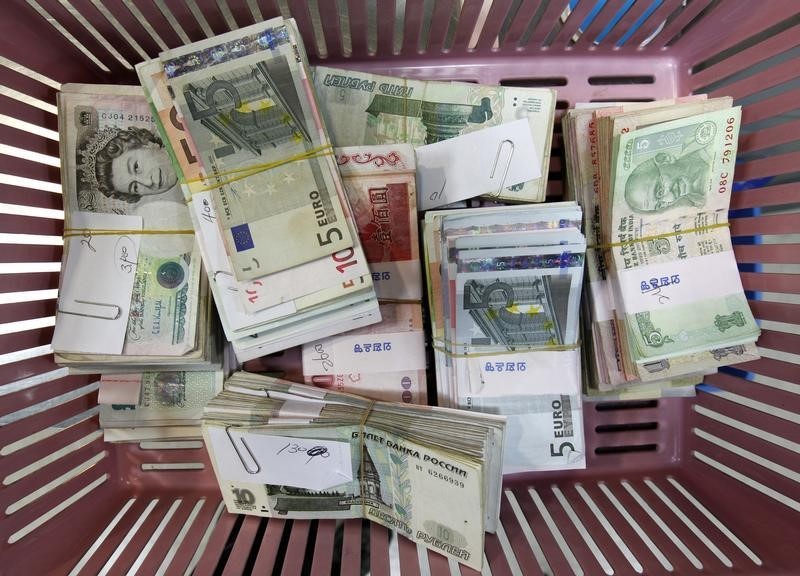(Bloomberg) -- The European Central Bank is likely to step up its crisis response later this year, according to economists, with a faltering recovery and a stronger euro threatening to exacerbate price declines.
Most respondents in a Bloomberg survey expect an increase in the 1.35 trillion-euro ($1.6 trillion) pandemic bond-buying program by December, with a median prediction of 350 billion euros. The Governing Council is seen keeping policy steady when it meets virtually next Thursday, but some analysts expect President Christine Lagarde to hint at the possibility of more action in the future.
While the initial rebound from the coronavirus recession has been strong, a range of issues are clouding the outlook. Infections have been rising in the wake of summer travel and loosened restrictions, and indicators suggest the economy is starting to run out of steam.
In another worrying signal for policy makers, euro-area inflation turned negative last month for the first time in four years, with the core rate hitting a record low. The ECB is set to publish new forecasts next week that will help determine how much stimulus the economy still needs.
“Data have been good enough to not warrant any new policy action in September but uncertainty about the virus, growth and the inflation path remains,” said Bas van Geffen, a quantitative analyst at Rabobank. “The ECB will reconfirm that it remains ready to adjust policy as and when necessary.”
What Bloomberg’s Economists Say
“The Governing Council may indicate next week that downside risks have intensified, signaling monetary policy could be loosened further before the end of the year.”
-- David Powell and Maeva Cousin. Read the ECB PREVIEW.
Most economists surveyed expect the pandemic purchase program to be extended by six months to the end of 2021. Respondents also said the ECB will make available about 210 billion euros more through March via its various bank-lending programs.
Interest rates are seen remaining unchanged until at least the end of 2022. The deposit rate currently is at -0.5%.
Many of those predictions might be at risk if the euro continues to appreciate. The common currency climbed above $1.20 this week for the first time in two years after jumping 12% since the start of coronavirus lockdowns in March. It’s since pared some of those gains after ECB chief economist Philip Lane said the exchange rate matters for monetary policy.
A stronger euro puts downward pressure on prices by cutting the cost of imports. The speed of the single currency’s rise should be the chief concern, according to economists, though they added that it’s largely driven by forces outside the central bank’s control.
The Federal Reserve’s commitment to keep interest rates at rock-bottom, as well as the European Union’s historic agreement on a joint fiscal response to the crisis, are seen as some of the reasons for the euro’s strength against the greenback.
“Up to now, the euro’s appreciation doesn’t change the inflation outlook considerably,” said Kristian Toedtmann, an economist at DekaBank in Frankfurt. “But with its rhetoric, the ECB should guard against an upward trend of the exchange rate.”
In the longer-term, economists expect European policy makers to follow the Fed in adopting a strategy that allows for temporarily overshooting its inflation target of around 2%. The majority of respondents said the ECB will probably change the current target of “below, but close to, 2%” to one that aims to reach this value as an average over time.
©2020 Bloomberg L.P.
